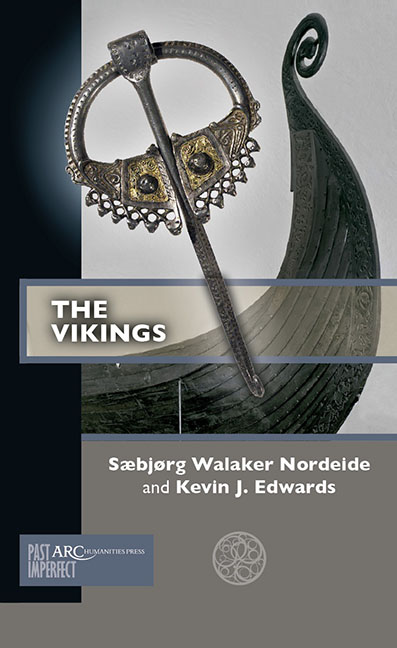Preface
Published online by Cambridge University Press: 20 November 2020
Summary
“The Vikings” hold a universal fascination which has persisted for centuries. From the horrific tales of Alcuin of York in the eighth century CE/AD and the eleventh-century Adam of Bremen, via the heroic saga literature of Iceland recorded in the thirteenth to fourteenth centuries, through to nineteenth-century Scandinavian romanticism, the Norsemen have engendered fear and occasionally admiration. The appropriation of Viking art and symbolism by the Nazis led to a low point in wider social approval, but in terms of scholarly attention the Vikings have regained their popularity both inside and outside of universities. The Vikings appear frequently in fantasy films and books, they are brought to “life” through re-enactments and music, exhibitions and conferences, attracting thousands of adherents. No wonder—the Viking Age is a dynamic and important part of human history, significant to the foundation of the modern states of Scandinavia and the wider Nordic world, as well as having exerted a major influence on the histories of other countries.
In this concise book, it would be unrealistic to give voice to all aspects, directions, and attitudes concerning Viking research, nor is it possible to extemporize on the popularity of the Vikings. Rather, we address some key issues concern-ing life, society, economy, and environment during the Viking Age. Study of the Vikings may induce disparate, strong feelings according to whether they are perceived as adventurers or colonisers. We hope that the combination of authors from Scandinavia and the UK, addressing such dichotomies, will benefit from their varied backgrounds in archaeology and geography, as well as familiarity with Scandinavia, the British Isles, the North Atlantic region, and the associated scholarly traditions. In presenting an overview of the Vikings from conceptual, ideological, and material perspectives, in their homelands and beyond, the approach reflects the interdisciplinary and international character of contemporary Viking studies.
We would like to thank Simon Forde for inviting us to write this book and we are very grateful for his comments, and those of an anonymous referee, on a draft of the manuscript.
- Type
- Chapter
- Information
- Vikings , pp. xi - xiiPublisher: Amsterdam University PressPrint publication year: 2019



